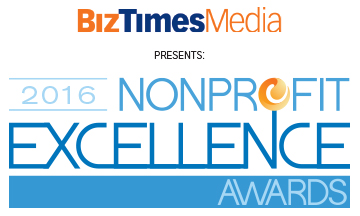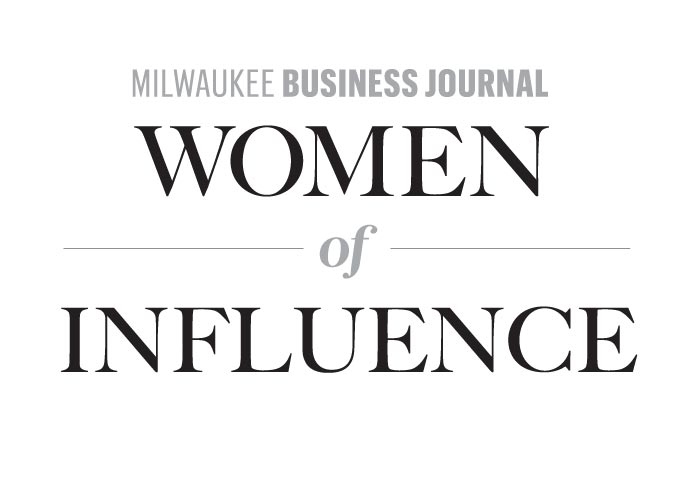New Parents
Congratulations on your new baby!
If your newborn has just received a Down syndrome diagnosis, you are probably experiencing a whirlwind of emotions. The first thing to understand is that you are not alone. In Wisconsin, there are more than 8,000 individuals with Down syndrome. DSAW represents the interests of these families, providing programs, services, resources, and support.
Parent's First Call Program
For new parents of babies with Down syndrome, an opportunity to speak with other parents who have experienced what you are experiencing can be invaluable. DSAW Support Parent Network is a statewide group of trained parent mentors available 24/7 to listen, share, answer questions, and provide valuable information. If you would like to speak with a DSAW Support Parent, please fill out our new/expectant parent form or email firstcall@dsaw.org.
New Parent Welcome Basket
DSAW offers all new parents of children with Down syndrome a welcome basket that includes books, gifts, a new parent package of information, and more! To request the welcome basket, fill out our new/expectant parent form or email firstcall@dsaw.org.
Connect With Support Near You
Wherever you live, DSAW can support you! Click here to find Parent Support Groups, Regional Committees, and/or DSAW Chapters near you. No groups in your area? Start your own! To get started just email Mary Gaffron: mgaffron@dsaw.org
Online Resources
Check out the digital version of the DSAW Parent's First Call Magazine. A hard-copy of this magazine is included with all Expectant Parent Packs and New Parent Welcome Baskets.
We highly recommend that you check out our national partners, including the National Down Syndrome Congress (NDSC) and the National Down Syndrome Society (NDSS) for a wealth of information for new parents.
The National Down Syndrome Society's "A Promising Future Together" guide is written specifically for new and expectant parents.
Brighter Tomorrows provides families with balanced information about receiving a prenatal or postnatal diagnosis of Down syndrome.
Check out our New Parent Resources, Resources by Subject, and Resources by County pages for more information.
Recommended Books
Down Syndrome Parenting 101 by Natalie Hale
Gifts: Mothers Reflect on How Children with Down Syndrome Enrich Their Lives, edited by Kathryn Lynard Soper
Common Threads: Celebrating Life with Down Syndrome by Cynthia Kidder and Brian Skotko
The Parent's Guide to Down Syndrome: Advice, Information, Inspiration, and Support for Raising Your Child from Diagnosis through Adulthood by Jennifer Jacob and Mardra Sikora
What I Want You To Know: Messages of Hope and Joy from your Baby by RA Hudson
Adoption
We understand that not all birth families feel they are able to meet the needs of children with Down syndrome. The National Down Syndrome Adoption Network provides information to birth families who may be seeking alternatives to parenting as they prepare for the arrival of their child. The network currently has over 200 registered families, each waiting to adopt a baby with Down syndrome. You may contact them directly at (513) 213-9615.
Health Care Professionals
As a new parent of a child with Down syndrome, take comfort in knowing that Wisconsin is a great place to live. Here are just a few recommended health care resources in Wisconsin:
- Children's Hospital of Wisconsin Down Syndrome Clinic (Milwaukee)
- Waisman Center Down Syndrome Clinic (Madison)
- Gundersen Down Syndrome Clinic (La Crosse)
Additional Resources
Talk About Down syndrome - People First Language
How should I talk about Down syndrome? We must sometimes remind ourselves to communicate about individuals with Down syndrome (and other special needs) in a positive and accurate manner. All people are people first and foremost and people with special needs secondary. The diagnosis or medical condition of an individual does not define who they are or what they are capable of. Their personality, individual characteristics, gifts and talents define who they are. We must remember to focus on the possABILITIES and not the DISabilities of a person. This document is designed to provide suggestions to help talk about Down syndrome.
Baby Announcement
Let's face it... this part can be tough. But perhaps this sample can offer you some guidance.
Health Care Guidelines for Individuals with Down Syndrome
The American Academy of Pediatrics has developed specialized health care information for families of children with Down syndrome that spans the prenatal period through age 21.
Katie Beckett Program - Supplemental Insurance
Children born with DS often experience medical complications at birth, many of which today are corrected with routine procedures. In addition, children with DS will benefit from physical, occupational and speech therapy in their first months and years. But all of this comes at a cost.
While your personal health insurance may provide coverage, the Katie Beckett (named after a young girl in Iowa when the program started under the Reagan Administration) Medicaid program can cover costs that insurance plans sometimes will not. Children who are not eligible for other Medicaid programs because the income or assets of their parents are too high may be eligible for Medicaid this way.
Our experience shows us that many DS children qualify for Katie Beckett benefits, so make sure to contact your local Katie Beckett representative to determine your own eligibility.
Birth to 3 - Wisconsin's Early Therapy Intervention Program
This is Wisconsin's early intervention program for infants and toddlers with developmental delays and disabilities. Through it, your child will receive (in most cases) in-home physical, occupational and speech therapy depending on his or her needs, often at little-to-no cost to your family.
A federal law, the Individuals with Disabilities Education Act (IDEA), provides a framework for a comprehensive program and coordinates developmental, health and social services within the community.
Wisconsin Department of Health and Family Services (DHFS)
Listing of services in Wisconsin for those with disabilities.
Well Badger Resource Center
Statewide information and referral service dedicated to helping families and professionals find resources for children birth to 21 years with special needs. Call their hotline at 1-800-642-7837 to find the closest regional center for CSHCN, Children with Special Health Care Needs, or for help finding other resources near you.
Family Support Program
In-home support for families with children who have severe disabilities. Offers information and help in finding service programs and community resources, some funding to purchase necessary goods and services unavailable elsewhere and links to other families to build a support network.
FACETS - Wisconsin Family Assistance Center for Education, Training & Support, Inc.
Informs and instructs parents how to obtain appropriate education
Works to improve education results
Helps resolve issues between families and schools or other agencies
Provides a critical resource to connect families to community resources
Finding Your Way Navigation Guide
The guide is published and maintained by the Southern Regional Center for Children and Youth with Special Health Care Needs (CYSHCN) through a collaboration with the Wisconsin State Department of Health Service Title V Maternal and Child Program and the Waisman Center University Center for Excellence in Developmental Disabilities.
This resource has been reviewed by content experts, information and referral specialists, and families. The guide includes brief descriptions of programs, services, systems of support, and contact information for these resources.
For more resources, check out our Resources by Subject page.






